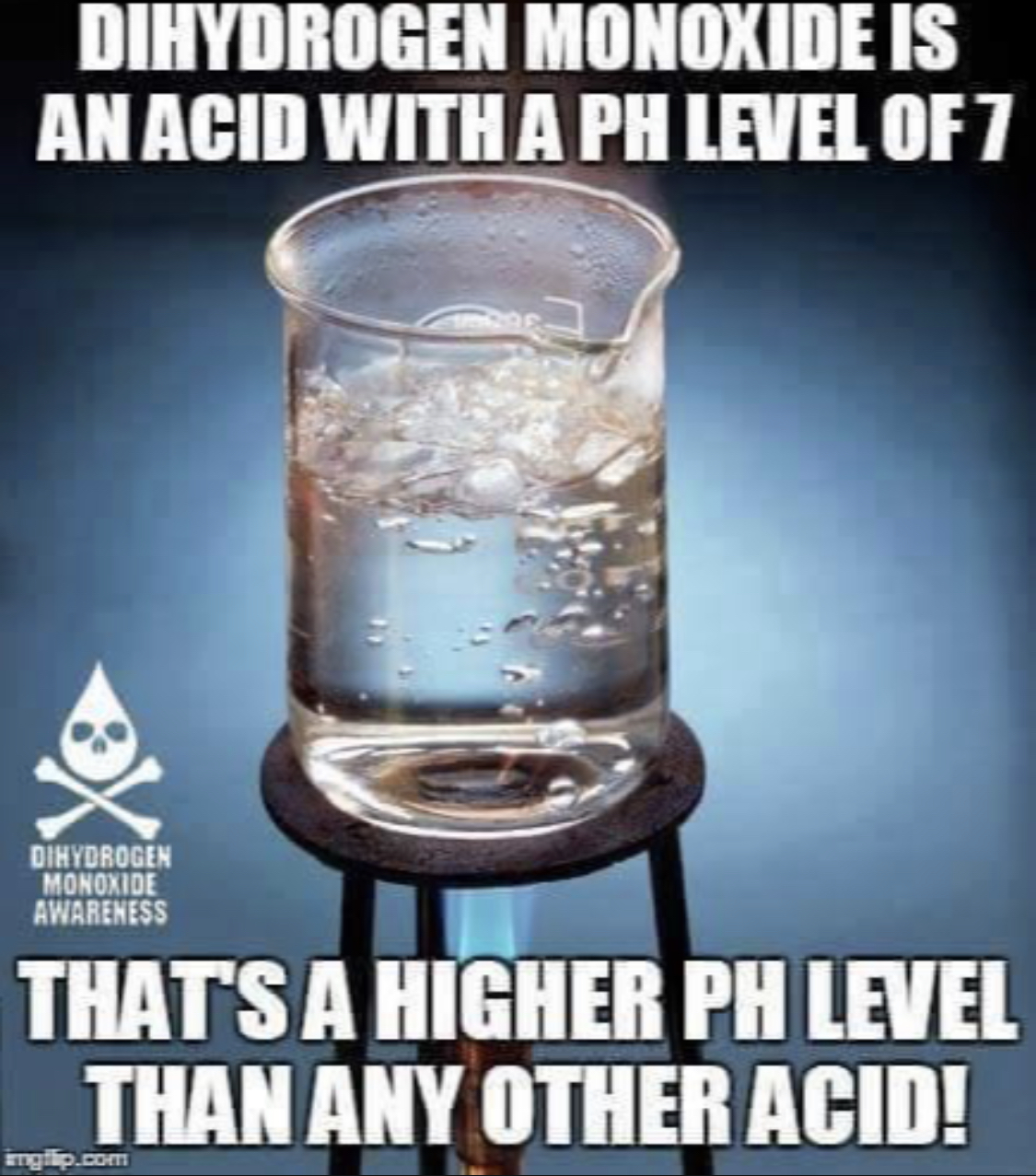this post was submitted on 02 Sep 2023
844 points (95.7% liked)
Memes
46038 readers
1880 users here now
Rules:
- Be civil and nice.
- Try not to excessively repost, as a rule of thumb, wait at least 2 months to do it if you have to.
founded 5 years ago
MODERATORS
you are viewing a single comment's thread
view the rest of the comments
view the rest of the comments

Dihydrogen monoxide isn't a good name for water, especially in this context. Hydroxic acid or hydrogen hydroxide make much more sense.
Water only splits into O2 and H2 under electrolysis, not due to acid/base chemistry. You have to be actively adding electrons. In solution, it dissociates into ion states as protons H+ and hydroxide OH-.
Neeeeeeeeeerd!
Got more interesting science stuff ?
Water is the most common substance that can be either an acid or a base (on earth), but lots of other compounds are also amphoteric.
In fact, on other planets where ammonia fills the same role as water, ammonia would be the most common amphoteric substance, so most solutions would be in a liquid ammonia solvent. This means neutral pH on those planets would substantially higher!
K_w is the auto dissociation constant for water, and at room temp, K_w is about 10^(-14). Taking the negative log of the square root of K_w gives the pH of pure water of about 7. The auto dissociation constant of ammonia, however, is about 10^(-30), so the pH of pure liquid ammonia is about 15! Basically, as soon as we start using solvents other than water, pH gets really funky
Edit: and before anyone jumps in to say "ack-shully, pH is based on the concentration of hydronium ions in solution, so you can't use pH for systems based on solvents other than water," pH can also be considered to be based on the protonated form of whatever the solvent is. So in an ammonia-based solution, you would find the pH by taking the negative log of ammonium instead of hydronium. Instead of defining pH as
pH = -log [H_3 O^(+)]
A more universal definition would be
pH = -log [H_2 A^(+)]
Where the auto dissociation reaction of any amphoteric solvent can be written as
HA + HA -> H_2 A^(+) + A^(-)
This is more detail than most people care about, but there's always lurking pedants on the Internet, so I thought I would leave a more detailed explanation
I knew that other planets had other chemicals as the most abondant substance on them but it being taking place of water is something i never knew. Perhaps, aliens are sipping ammonia based cola as we speak !
Care to explain the neutral PH thing ? I don't really understand it. Does it mean it's ammonia based liquids wan to stabilize to 15 PH or something like that.
Sorry if it sounds dumb, English isn't my native language and i wasn't really a science guy at school when kid. Now, everything fascinates me. I never was good with math but i saw its beauty in programming ( if we taught kids math by making games with it we'd have a whole generation of math lovers )
If the anion ends in "ide", the acid name is hydro___ic acid. So hydroxide becomes hydrohydroxic acid.
Source: I teach chemistry.
So, uhm... wanna cook?
Hydroxic acid sounds more terrible in this context, yes. But what does that have to do with possible reactions of H2O?
https://wiki.c2.com/?HydrogenHydroxide
It is not reacting as an acid here, it is both at once.
And that was not even the point.